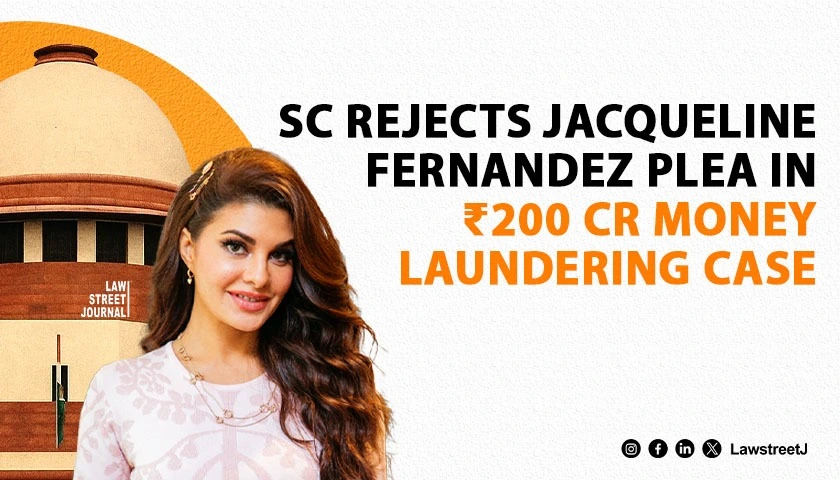NEW DELHI: The Supreme Court on Monday declined to entertain a plea by actor Jacqueline Fernandez seeking to quash ECIR (equivalent to FIR) in a Rs 200 crore money laundering case involving alleged conman Sukesh Chandrasekhar.
The court rejected her petition against an order passed by the High Court.
Fernandez is an accused in the money laundering case lodged against Chandrasekhar and had appeared before the Enforcement Directorate for questioning in the investigation.
Delhi Police booked Chandrasekhar for allegedly duping the spouses of former promoters of Ranbaxy, Shivinder Singh and Malvinder Singh of Rs 200 crore.
Taking up her challenge to the High Court's order, a bench of Justices Dipankar Datta and Augustine George Masih told senior advocate Mukul Rohatgi that the court would not interfere at this stage.
The actor filed the plea in the apex court through advocate Sumeer Sodhi.
The court said at the stage of framing of charges, the petitioner would have to accept what is the allegation.
The court appreciated the point that the law is such that anyone can be involved.
The court said that suppose they were two very close friends and now if one friend gives something to the other friend, ultimately if it is found that the other person is involved in a predicate offence, it is very difficult.
Rohatgi pleaded that his client came in touch with this man, and she never asked him to give her any money.
He submitted that she met him because she is a film star, and someone introduced her to him.
The bench observed that the petition may be withdrawn and the petitioner can approach the court at the appropriate stage.
Rohatgi urged that the observations made by the high court should not influence the trial. The apex court clarified that the observations were limited to the disposing of the quashing petition.
Fernandez has challenged the high court's July 3, 2025 order which dismissed her petition seeking quashing of the Enforcement Case Information Report (ECIR) in the money laundering case.
Disclaimer: This content is produced and published by LawStreet Journal Media for informational purposes only and does not constitute legal advice. The views expressed are independent of any legal practice of the individuals involved.

















